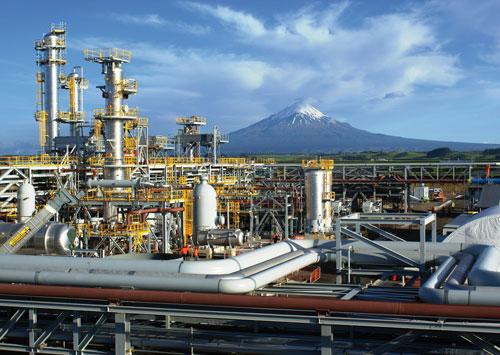|
IT’S EARLY days yet, but at Origin Energy’s Kupe gas project in Scheduled to be up and running in Q4 2009, Kupe is shaping up to be a milestone showcase of Foundation Fieldbus (FF) control technology – the first large grassroots project of its type in “Origin was keen to embrace the technology from an early stage,” says Mike Oakes, Kupe production manager for Origin Energy. “We made the decision two and a half years ago, because we felt that the Fieldbus platform had made significant progress and offered many operational advantages.” Custom Controls and Emerson Process Management have both been actively involved in providing the critical training requirements for the project to boost competency – covering Fieldbus technology, control valve diagnostics and operations and utilising Emerson’s plant simulation training system. Live simulation is the key role of Emerson’s Hi-Fi Operator Training System (OTS) – which trains operators as if they are carrying out checks on an actual live plant network. The Kupe project involves thousands of instruments and devices, and features a wide range of products from Emerson Process Management and from manufacturers represented in Because all communications from all devices are via the digital high-speed FF platform, operators can take advantage of smart new capabilities such as auto-calibration and self-diagnostics. “There are very few local transmitters involved on this project,” explains Mike Oakes, “and if you put in an extra transmitter, you don’t have to worry about a cable. Everything in the field is controlled through FF technology – that means one cable only, which represents a significant saving. It also means information can be seen in the field and in the control room at the same time.”
|
Oakes sees the partnership with Emerson Process Management as especially critical, because of their offshore experience with similar projects and their system knowledge. Another advantage of the FF platform is the ability to remove an instrument from a barrier without affecting any other device – a huge improvement says Oakes. “Each barrier is capable of running up to 14 instruments each – but we will be running just eight each.” Fast online diagnostics and improved reliability are the two key benefits of Fieldbus, according to Custom Controls’ Jim Neville. “If there’s a problem with a device, you can learn a lot more about that problem in the control room, without having to send out a technician to start pulling the device apart.” The speed at which new instrumentation can be commissioned is another big plus he says. Meanwhile, there is a lot of training happening to ensure everyone is up to speed for when the plant starts up. “It’s about totally embracing the technology,” says Oakes. “Foundation Fieldbus is a tool that will absolutely work for you. But if you fail to completely understand it, then you’re in danger of it working against you.” Email: jneville@customcontrols.co.nz
|






